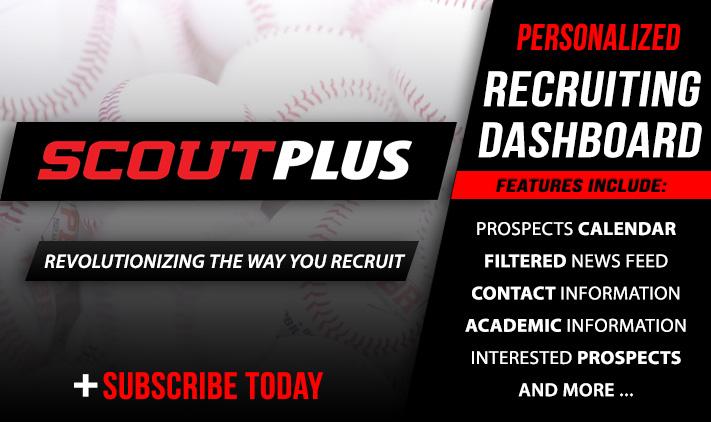PBR Mailbag: What Do College Coaches Look For?
October 19, 2016

Trey Sofio
Louisiana Scouting Director
What do college coaches look for?
This is obviously a common question many parents, players and even fans have because there is very little information out there available on the subject. The truth is there is no simple answer to the question. The thing to keep in mind is that there are a vast number of variables, and every coach/program has different priorities in recruiting.
Obviously, the ability of the player will play a major factor in the recruiting process. The tools (run, throw, defend, hit for average, and hit for power) of a particular player are graded out by college coaches everywhere, but each coach will prioritize tools differently, and current needs will also play a major factor in the evaluation process. Certain programs like players that run extremely well, and will sacrifice power, while others look for players that can hit for power and are willing to sacrifice on the run tool. A general overview for position players when it comes to prioritizing toolsets would be: middle-of-the-field players (catchers, middle infielders, and center field) defense will generally outweigh the hit tool. With corner players, (third/first base, right/left field) the hit tool is generally more important than defense. Also, some programs put an emphasis on projection, while others value performance over projection. We can go on and on, as every program will vary on the emphasis placed on particular toolsets.
It is important to keep in mind that there are very few, if any, legitimate five tool prospects in the country playing high school baseball. I mention that because it is important to understand that a player doesn’t have to be great at everything to get a scholarship offer from a Division I program. Baseball has become extremely specialized, and in today’s game, if a player can do one thing extremely well, odds are a college program somewhere will take a chance on him. For example, if a pitcher possess a true swing and miss breaking ball, but lacks velocity somewhat, it is still likely that a college coach will have interest in him.
To go along with ability, college coaches across the country will pay close attention to the academics of the player. Division I programs are only allotted 11.7 scholarships, which means that they have to spend their money extremely efficiently. Prospects who have succeeded in the classroom are attractive because they could garner academic scholarships, that relieve some of the scholarship burden on the baseball program. In short, academics could be considered a sixth tool, and it only creates options for the player. In the same breath as academics, recruiters also want to know: Is the prospect a good teammate? Does he play hard? What does he post on social media? Does he stay out of trouble? How do his parents conduct themselves in the stands? Who does he associate himself with?
Again, this is an extremely complex process, and this response could go into much further detail. But this is just a brief overview of several things that are taken into account in the college recruiting process. The importance of each will depend on the coaching staff, program, conference, region, division level, and so on.
Have a question for Prep Baseball Report Louisiana that you would like to see discussed? PBR Mailbag is a weekly feature that will attempt to tackle one reader question a week, email [email protected].
Related Content
- PBRPlus - Oct 18, 2016
The Hotlist: Uncommitted 2018 Catchers - LA - Oct 18, 2016
Louisiana Knights Program Day: Stats Breakdown - LA - Oct 18, 2016
On The Recruiting Trail: 2018 OF Zane Zeppuhar - LA - Oct 17, 2016
Louisiana Knights Program Day: Quick Hits - LA - Oct 17, 2016
Player Spotlight: 2019 SS/2B Christian Garcia - LA - Oct 16, 2016
In Case You Missed It: Week In Review

